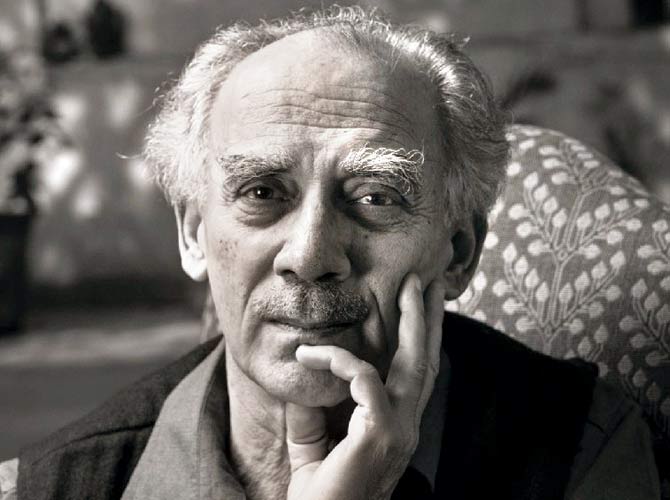In a new book, former minister and writer Arun Shourie opens up on a distressing chapter from his life to discuss what is currently wrong with the judiciary


Arun Shourie
ADVERTISEMENT
There is an incident that politician-economist Arun Shourie pens in his soon-to-release book, Anita Gets Bail (HarperCollins India), which is as worrying as it is traumatising. The case dates back to five years ago in August 2013, when the police landed at Shourie's Delhi home with an arrest warrant for his wife, Anita. The warrant, he says, had been issued for committing an offence under the Environment Protection Act, and for remaining absconding despite repeated court summons. "For the life of me I couldn't figure what poor Anita could have done to injure the environment," a bewildered Shourie, writes in the book. He would later learn that the case was related to a plot he had bought in Aravali Retreat in Gurgaon, in 1990, and which he later sold in 2008, as he "needed money for building a house near Pune".
The court had issued the summons to Anita for building an illegal farmhouse there. But, the Shouries claimed that they "had not so much as put down a loose brick on the plot". Yet, in October 2009, when the Haryana State Pollution Control Board had filed its case for environment violations in Aravali - a year-and-a-half after they had sold the plot - Anita was implicated. If that wasn't worse, the summons never reached their home. And, when the final warrant was issued, Anita, a Parkinson's patient, was forced to make repeated presence in the court, till the court finally absolved her of the crime in March 2015. In the intervening years, Anita also suffered pulmonary embolism. "That was a 'life and death' situation for her and, therefore, for all of us. Only the care of the doctors at the Ganga Ram Hospital [in Delhi] and her own strength saved her," says Shourie, in an email interview.
As one moves chapter by chapter, Shourie shows his dogged journalistic endeavour to prove what his currently plaguing the judicial system. From how facts were brazenly manipulated by a high court judge in the disproportionate assets case involving Jayalalithaa & Co, to how political forces have attempted to make this pillar of democracy, a frail one, Shourie unravels with both, mock and despair, the cracks in the judiciary. "The book gives several examples of how they [judges] do not exercise the power that the Constitution and the law confer on them. For instance, every day you see witnesses turning hostile; has any of them been punished for perjury? Judgment after judgment records that the prosecution did not furnish adequate evidence; on the other hand, there are judgments of the Supreme Court itself in which it has said that, in such an eventuality, the judge is not to sit as a passive spectator - but have you seen a judge pursue the prosecution for dereliction of duty?" argues Shourie, former minister in Atal Bihari Vajpayee's government.
The root of this problem, says Shourie, is the alarming decline in the quality of persons in public life over the last 40 years. "They have an inordinate role in the selection of judges. They completely control the police as well as the investigating agencies. They control the prosecutors. As Professor PV Indiresan [former director of IIT Madras] used to say, 'Second rate persons select third rate persons. You do this for 30 years and you will reach where we are now'."
In spurts the problem has indeed been handled, claims Shourie. "Under Chief Justice Venkatachaliah's leadership, for instance, pendencies in the Supreme Court were perceptibly reduced. But the judges can do only so much by themselves. Lawyers who drag out cases, the executive that does not give the judiciary adequate infrastructure - many institutions have to work together. And that I do not see happening in the foreseeable future," he says.
While efforts continue to restore faith in this system, Shourie feels it's too little, too late. "The fact is that we have slid so far down the slope - and that is in regard to all institutions - that little short of miracles can save us. And the central problem is that the real power to change course rests in the hands of the political class, and that class has a vested interest in undermining institutions rather than rebuilding them."
Catch up on all the latest Mumbai news, crime news, current affairs, and also a complete guide on Mumbai from food to things to do and events across the city here. Also download the new mid-day Android and iOS apps to get latest updates
 Subscribe today by clicking the link and stay updated with the latest news!" Click here!
Subscribe today by clicking the link and stay updated with the latest news!" Click here!






